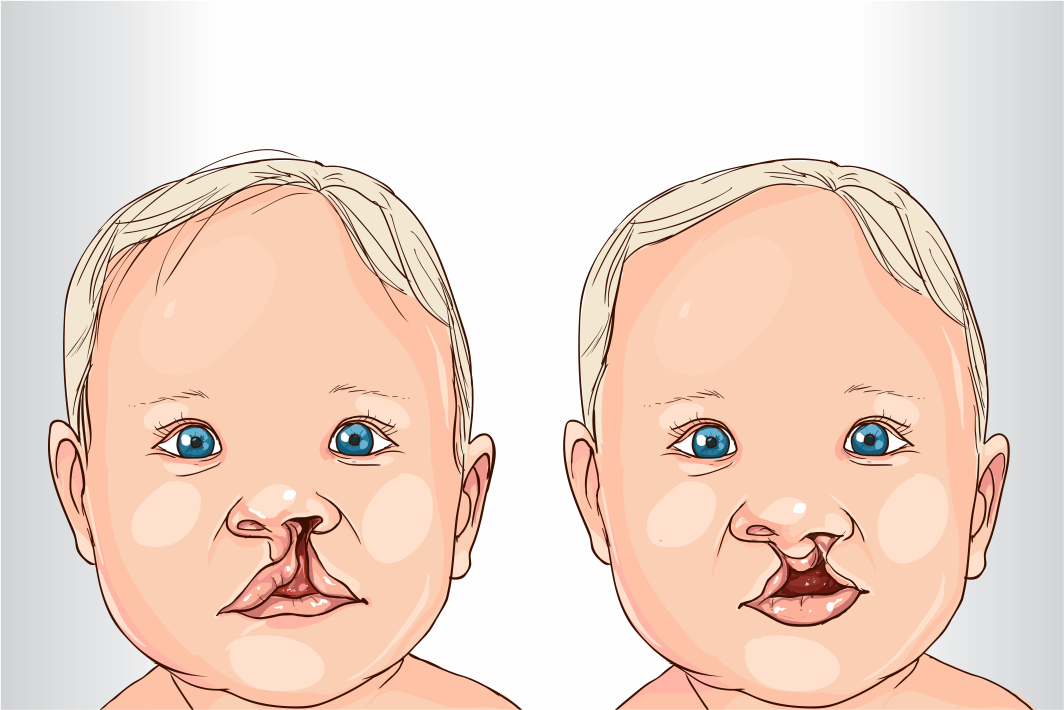Many children are born with cleft lip. It has a significant impact on the
little ones and their families. Ridiculed mainly by society for their looks,
many can’t afford the surgery due to the cost involved. Also, speech impairment
and leaking of food and liquid through the nose make it challenging. Cleft lip
is more common in males than in females.
A cleft palate is associated with an split or opening on the roof of the mouth or the upper palate,
as tissues sometimes fail to fuse. A split or cleft is found on the upper lip
and sometimes happens inside the upper palate without affecting the lip.
Causes
Genes can play an important role in the formation of cleft lip and cleft
palate. Newborn children may have congenital deformities inherited from their
parents.
An incomplete facial process in embryos leads to a cleft lip. This happens
in newborns from the fourth to the 12th week of gestation. Van der Woude
syndrome is a uncommon genetic disorder that causes various deformities in the
mouth, such as cleft lip and palate formation.
Pregnant women who lack folic acid and Vitamin B are at high risk. Their
children may be born with a cleft lip. Some likely reasons include obesity,
smoking, and alcohol consumption during pregnancy. Additionally, anti-seizure
medicines may also contribute.
Children suffering from cleft lips, if left untreated, may result in speech
disorders and chronic ear infections.
Prevention and cure
Eating enough vitamins and folic acid in pregnancy prevents cleft formation
in children. Surgeons can repair a cleft lip and palate with palatoplasty.
Palatoplasty is a surgery to close the opening between the nose and mouth.
Doctors recommend performing the surgery when the baby is 10 to 12 months old.
It repairs the deformity and aids speech development.
An ultrasonography of the fetus can detect any deformity and the occurrence
of an aperture.
The way ahead
People associate superstitious beliefs with cleft lip and palate. Hospitals
in cities perform surgeries daily. They sometimes offer them for free. However,
it’s a grim situation in rural areas. Children suffer from mental agony once
they have grown up.
Variations in voice and difficulty in eating also add to the woes.
Various organizations established camps to offer more information on cleft
lips and palate and how to repair them. More awareness is the need of the hour.
Also, screening pregnant women’s blood can be a deciding factor.





